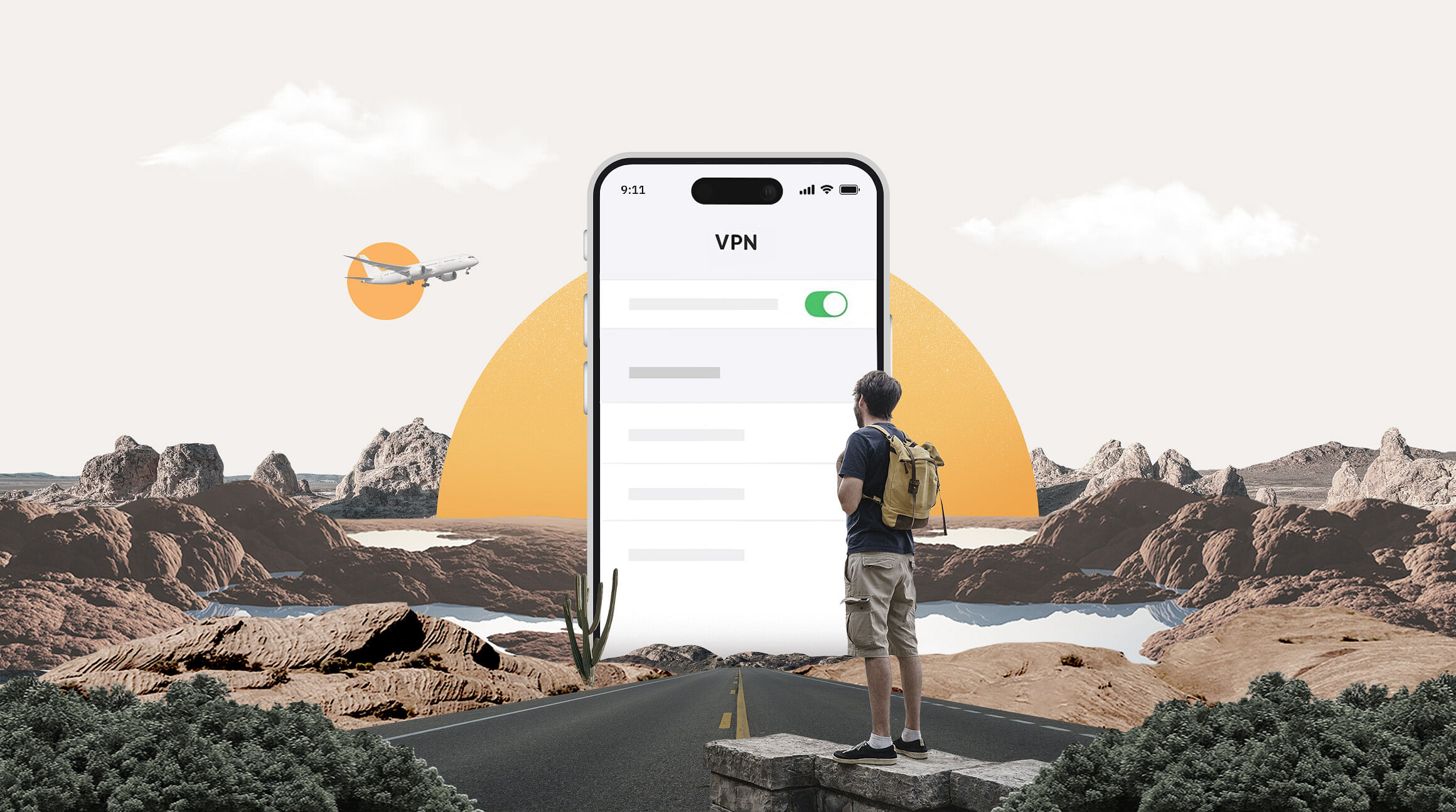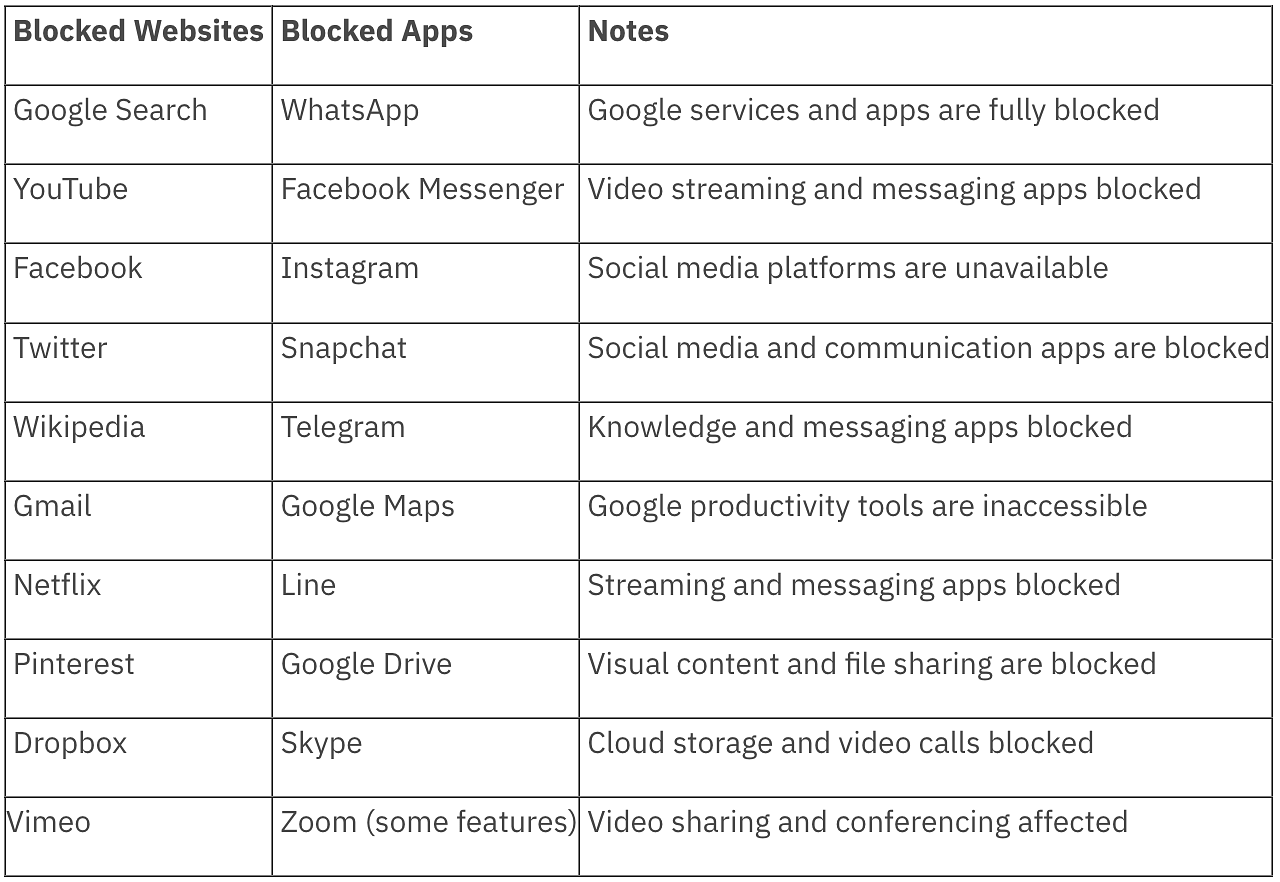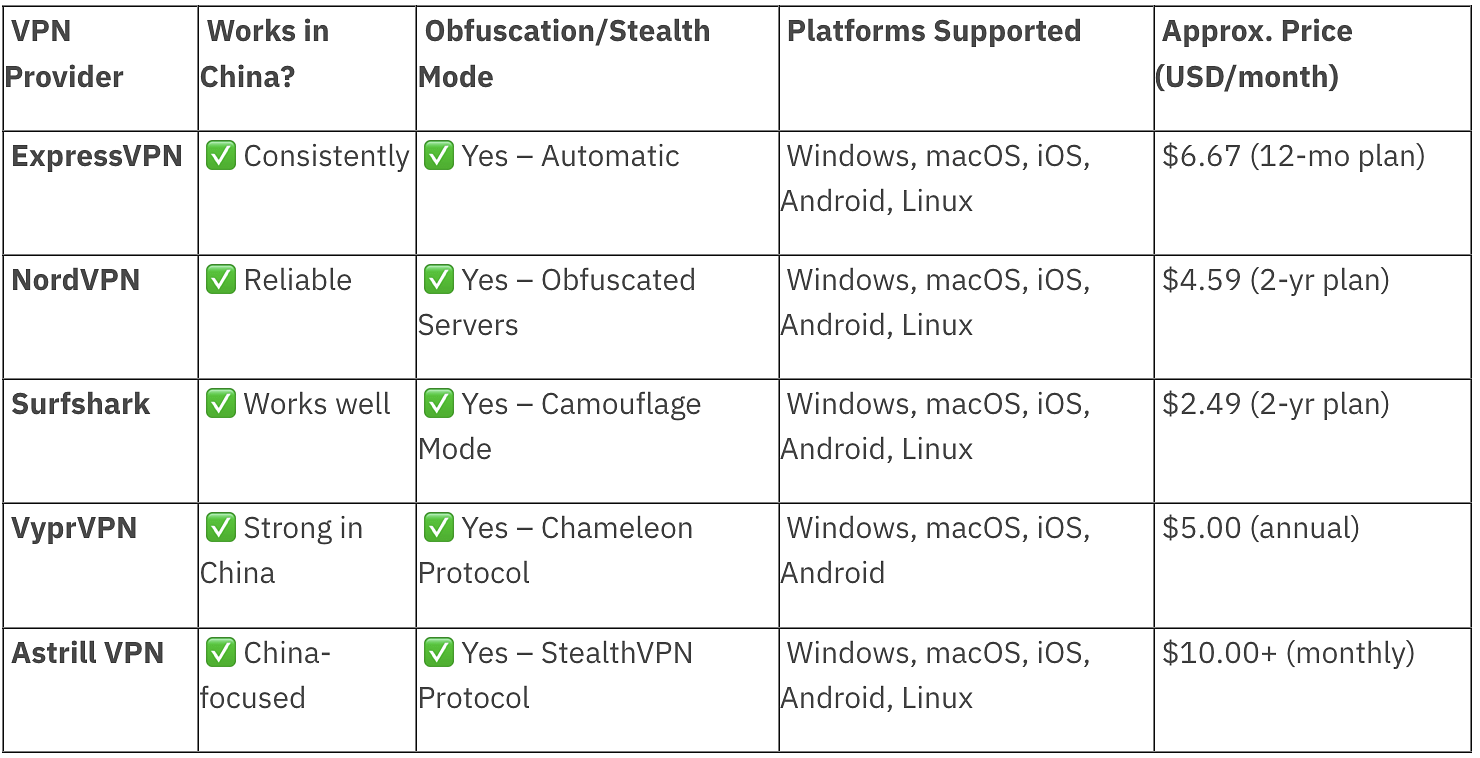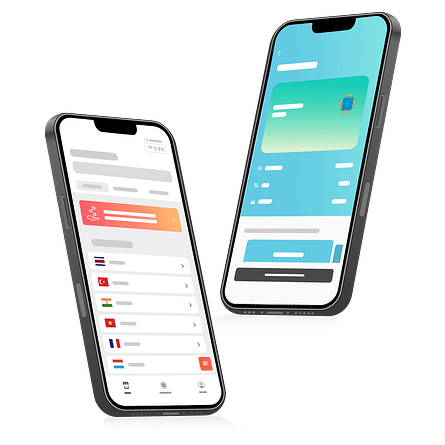
Traveling through China and struggling with internet connectivity?
Welcome to the ultimate internet rollercoaster. Amazing adventures ahead, but also some severe connectivity headaches.
I tried uploading these pictures from the West Lake (西湖) in Hangzhou (杭州) to Instagram using a VPN
The internet here isn’t your usual free-for-all; it’s tightly controlled. That means your go-to tools like Google, Gmail, Instagram, Zoom, or Google Maps don’t just work by flipping a switch on your phone.
I found this out the hard way when my VPN gave up mid-project.
Yep, panic mode activated.
That scramble pushed me to figure out which VPNs can actually hack the Great Firewall and why, spoiler alert, an eSIM turned out to be the smartest sidekick for staying online without losing my mind.
What Is the Great Firewall of China?
Step into China’s digital playground and you quickly realize things feel... different. The “Great Firewall” is no ordinary wall. It’s a high-tech censorship beast that filters and controls what you get to see online.
Popular foreign sites like Google, Facebook, Twitter, and YouTube? Mostly blocked. It’s like trying to watch your favorite show, but the remote’s locked away.
If you rely on the internet to get your work done, this is where things get tricky.
Enter the VPN: your digital invisibility cloak. It scrambles your connection and tunnels it through servers outside China, letting you peek behind that firewall and reach your usual websites and apps.
Without a solid VPN, staying connected feels nearly impossible. Good luck juggling your projects or chatting with clients when half your toolbox is offline.
Why China Blocks Popular Websites and Apps?
China’s strict internet landscape is rooted in a concept called “cyberspace sovereignty”—a government-led approach to keeping tight control over online content.
The strategy? Block foreign platforms and promote homegrown apps that stick to the local rulebook.
It makes sense to the Chinese government from a policy perspective. But as a traveler, it can feel like stepping into digital culture shock.
Here’s what that looks like on the ground:
- Google, Gmail, Instagram, YouTube, and similar apps are blocked
- You’ll need local alternatives like WeChat and Baidu
- Not all VPNs work reliably—test yours before arriving
- Basic tasks like booking rides or checking email can become tricky
- Streaming familiar content is often restricted
What Websites and Apps Are Blocked in China?
Here are the websites and apps that are blocked in China and how the restriction works.

Using an eSIM: A Safer Alternative
If you’ve ever landed in China and suddenly realized Gmail, Google Maps, and half your apps are completely unreachable, you’re not alone.
I had my wake-up call in Xi’an (西安), standing on a street corner with a phone that couldn’t load a single map or email. That’s when I made the switch to an eSIM—and honestly, it changed everything.
An eSIM is a built-in digital SIM that lets you download and activate mobile data plans before you even take off. No physical SIM cards, no language barrier guesswork at airport kiosks, and no last-minute panic when the Wi-Fi doesn't work.
I now use Airalo’s China eSIM, and the second I touch down, my phone connects. VPN on. Gmail open. Good to go.
Here’s why it’s such a smart move if you're traveling through China:
- Budget-friendly – Unlimited data for just $3.50/day
- Preload before departure – Skip the SIM card scramble after landing
- Instant connectivity – Online the moment your plane hits the tarmac
- VPN-compatible – Smooth access to Gmail, Google, and other blocked apps
- No SIM swapping – Keep your original number and ditch the plastic
- Consistent signal – Reliable coverage as you move across cities and provinces
In China, where reliable internet isn’t always a given, an eSIM isn’t just a convenience—it’s your digital lifeline.
But Can You Use a VPN in China?
This question pops up all the time, and the answer’s a bit tangled. VPN use in China is a gray zone. According to NordVPN, officially, only government-approved VPNs are legal.
But those don’t offer the free internet most digital nomads want.
Using an unapproved VPN? Technically against the rules, but enforcement varies a lot depending on where you are and what you’re doing online.
As a tourist, you’re unlikely to get in trouble if your personal VPN was installed before arrival. Residents face tighter scrutiny, especially if they’re drawing attention by using VPNs to bypass censorship aggressively.
Is It Safe for Tourists to Use VPNs in China?
Generally, yes, but with a dash of caution. Most travelers I know (myself included) cruise through with VPNs just fine, especially if you’re logging in to work platforms or catching up with family overseas.
But here’s the deal: don’t wave it around like a neon sign. Streaming foreign news about politically spicy stuff online? Probably not your best move.
The Chinese government isn’t out hunting tourists for casual VPN use or work emails, but it pays to fly under the radar.
Keep your VPN use low-key and stick with reputable providers who offer stealthy obfuscation features. That’s your secret sauce.
Pro tip: Install and test your VPN before you even touch down. That way, you’re not scrambling on arrival.
What Happens If You’re Caught Using a VPN?
This question scares many people, but the truth is... It’s way less dramatic than the urban legends suggest.
Officially, using unauthorized VPNs breaks some rules, but tourists are rarely fined or deported just for personal VPN use on a phone or laptop.
Now, if you’re working for a local company or stirring the political pot? Different story. For everyday travelers, the real hassle is your VPN suddenly going off. I’ve had it drop out during national holidays or political events, talk about bad timing when you’re on a deadline!
So, the real risk isn’t cops at the door, it’s losing your internet lifeline when you need it most.
Does VPN Work in China Today (2025)?
Why Some VPNs Work and Others Don’t
If you’ve tried surfing the web freely in China, you know not all VPNs are created equal. The Great Firewall doesn’t just block websites but plays detective and hunts down VPN traffic like a pro.
Basic or free VPNs that rock elsewhere often flop here. Why? Because China’s firewall uses some high-tech wizardry called Deep Packet Inspection (DPI) to sniff out and shut down VPN connections super fast, especially during sensitive times like national holidays.
So, the question isn’t “Does this VPN work anywhere?” but “Can it dodge China’s digital watchdogs day after day?” If your VPN can’t hide its tracks or shuffle servers regularly, get ready for a lot of blank screens and frustration.
What to Look for in a VPN That Works in China
Best VPN Providers for China
Touch down in China, and suddenly apps like Slack and Spotify vanish. The VPN that worked great in Europe? Totally useless here.
To get around the Great Firewall, you need a VPN with obfuscated servers—they disguise VPN traffic as regular web traffic, keeping you under the radar. Without it, expect dropped connections right when you need them most.
Pick a VPN built for China—it’ll save you a lot of stress.

Importance of Strong Encryption
Strong encryption isn’t just a nice-to-have; it’s your digital bodyguard. Look for VPNs rocking protocols like OpenVPN or WireGuard.
These keep your data locked down tight and your connection private, especially when you’re hustling over sketchy public Wi-Fi. Plus, they keep those sneaky hackers and nosy snoopers at bay while you work remotely.
Leak Protection is a Must
Encryption paired with leak protection is like peanut butter and jelly- perfect together. DNS and IP leaks can blow your cover, exposing your activity and location, which may disrupt your connection or, worse, draw unwanted attention.
So, before you hit connect, double-check that your VPN’s leak protection settings are switched on and ready to roll.
VPN Stability for Remote Work
Juggling clients across time zones? You don’t have time for VPN drama. The VPN you pick should be your silent, speedy sidekick. It should be secure, stable, and ready to go without making a fuss.
That way, your Gmail loads like a charm and your workday stays smooth. In other words, uptime and steady speeds are your best friends here.
How to Use VPNs in China Successfully
Always Download Your VPN Before Entering China
Here’s a rookie mistake you want to avoid: waiting until you land in China to download your VPN. Spoiler alert, it won’t work. China’s app stores play hide-and-seek with VPN apps, either making them vanish or blocking them outright.
I learned this the hard way when I touched down in Guangzhou without a backup VPN. The first 24 hours? Offline, stuck without Google Maps or access to my files. Not fun.
So, here’s the deal: install, set up, and test your VPN before you even board the plane.
Ensure it’s humming along smoothly and that you know how to reconnect manually if issues arise. The Great Firewall isn’t known for second chances. So, if your VPN isn’t ready, you’re locked out.
Enable Obfuscation or Stealth Mode Settings
Want your VPN to be the ultimate ninja? Turn on stealth or obfuscation mode. This clever trick disguises your VPN traffic to look like regular HTTPS web traffic.
Basically, it’s your VPN wearing a very convincing costume. Without it, you might get connected for a few minutes, then cut off. I ran into this until I flipped the stealth switch.
Most major VPNs have this setting in their preferences, so no tech wizardry needed. Once it’s on, expect smoother sessions and way fewer annoying dropouts. Your VPN traffic will blend in like a pro.
Use Multiple Server Options & Backups
Think of VPN servers like backup dance partners: when one stumbles, another steps in. Choosing a VPN with servers in nearby countries.
Japan, South Korea, and Hong Kong gave me a safety net. If one server started lagging or disappeared from the lineup, I just switched to another.
Bonus tip: keep backup VPN profiles ready to go.
China’s firewall likes to play surprise-block, so switching fast can save your day. Like when I had a client presentation with just five minutes to spare. Flexibility is your secret weapon.
Set Up VPN on Multiple Devices
When your laptop’s VPN decides to be stubborn, your phone’s VPN might just save the day.
Having your VPN set up on more than one device is pure gold, especially when you’re balancing remote work, travel plans, and catching up with friends.
Sometimes, hotel Wi-Fi likes one device better than another, or you might need to tether on the fly.
Dual setups mean you’re covered no matter what. It’s invaluable in a place where internet access can be a gamble.
Why VPNs Won’t Work Without Reliable Internet
Hotel Wi-Fi is Unreliable and Often Restricted
Don’t get your hopes up about hotel Wi-Fi behaving like it does back home. Even fancy hotels can offer snail-paced speeds and random dropouts. Sometimes the routers have built-in firewalls or local blocks that throttle or kill VPN connections before they even start.
I’ve had to leave hotel lobbies and hunt down cafés just to get a decent signal. This is no fun when you’ve got a Zoom call or urgent uploads. Hotel Wi-Fi is just too shaky for serious remote work or secure browsing with a VPN.
Stay Connected and Keep Working in China
Here’s the truth: your VPN only works as well as your internet connection does. And sadly, hotel Wi-Fi and local SIMs often don’t cut it.
The Great Firewall is tough, but with a strong VPN and steady internet, you can breeze through without the usual headaches.
That’s why I swear by an eSIM when traveling in China. Airalo’s China eSIM kicks in instantly with rock-solid internet, letting my VPN run like a dream and my workflow without a hitch.
If you’re headed to China for business or adventure, this is hands-down the smartest way to stay online from day one.



